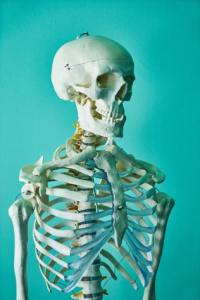![]() Submitted by Stefan Overgaard, Owner of SXS Fitness in Toronto
Submitted by Stefan Overgaard, Owner of SXS Fitness in Toronto
Increase your calcium intake and protect your bones NOW!
During childhood and adolescence bones are growing at a very fast rate and their bodies are working hard to achieve their peak bone mass. The more we can support this process the better off they will be in the future. Prevention of osteoporosis is really best done in our youth! One great way to support bone health is to encourage healthy eating, particularly increasing calcium and Vitamin D intake.
Health Canada reports that Canadian youth are eating inadequate levels of magnesium, vitamin A, vitamin D, calcium and phosphorous. On top of that, youth athletes have increased nutritional needs compared to their more sedentary peers. Two nutrients of particular concern are calcium and iron. Inadequate calcium intake impacts bone health and has also been linked to shin splints and stress fractures.
To increase calcium intake, eat high-quality organic dairy products (milk, yogurt, cheese, kefir), leafy greens, broccoli, figs, oranges, almonds, legumes, chia seeds, and seafood. You can also eat foods fortified with calcium like non-dairy milk products, cereals and tofu. Another great approach to supporting bone health is to DECREASE or ELIMINATE soft drink intake. Most sodas, especially colas, are acidic. The body naturally removes calcium from our bones to create a more alkaline environment. The Oslo study shows an association between higher soft drink intake combined with low fruit and vegetable intake leading to lower bone mass density.
So, the next time you are deciding what you want to eat, remember your choice can affect you in so many ways! Not only in the immediate future, impacting your energy levels and digestion, but also long-term effects such as bone health. Say no to the pop, chips, candy, baked goods, fries, and processed food and YES to fruits, vegetables, foods high in calcium and of course, working out hard in the gym!
Visit www.sxsfitness.ca
References:
Antonio et al. Essentials of Sport Nutrition and Supplements. Humana Press, Totowa NJ: 2008.
Arne Torbjørn Høstmark,1 Anne Johanne Søgaard,1,2 Kari Alvær,2 and Haakon E. Meyer1,2 The Oslo Health Study: A Dietary Index Estimating Frequent Intake of Soft Drinks and Rare Intake of Fruit and Vegetables Is Negatively Associated with Bone Mineral Density. Journal of Osteoporosis; Volume 2011, Article ID 102686, 7 pages. http://dx.doi.org/10.4061/2011/102686
https://www.nof.org/patients/treatment/calciumvitamin-d/a-guide-to-calcium-rich-foods/
https://www.dietitians.ca/Downloads/Factsheets/Food-Sources-of-Calcium.aspx
